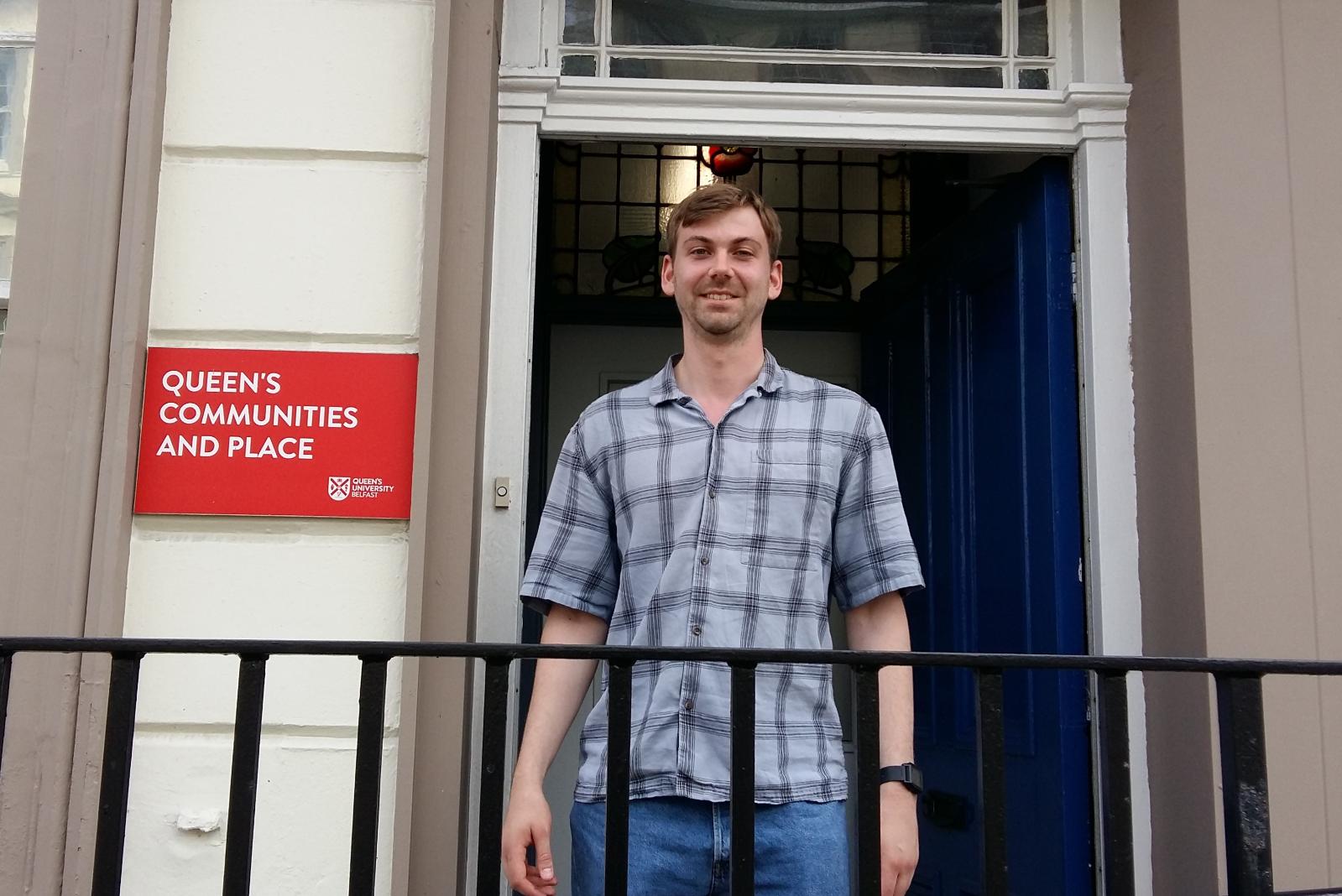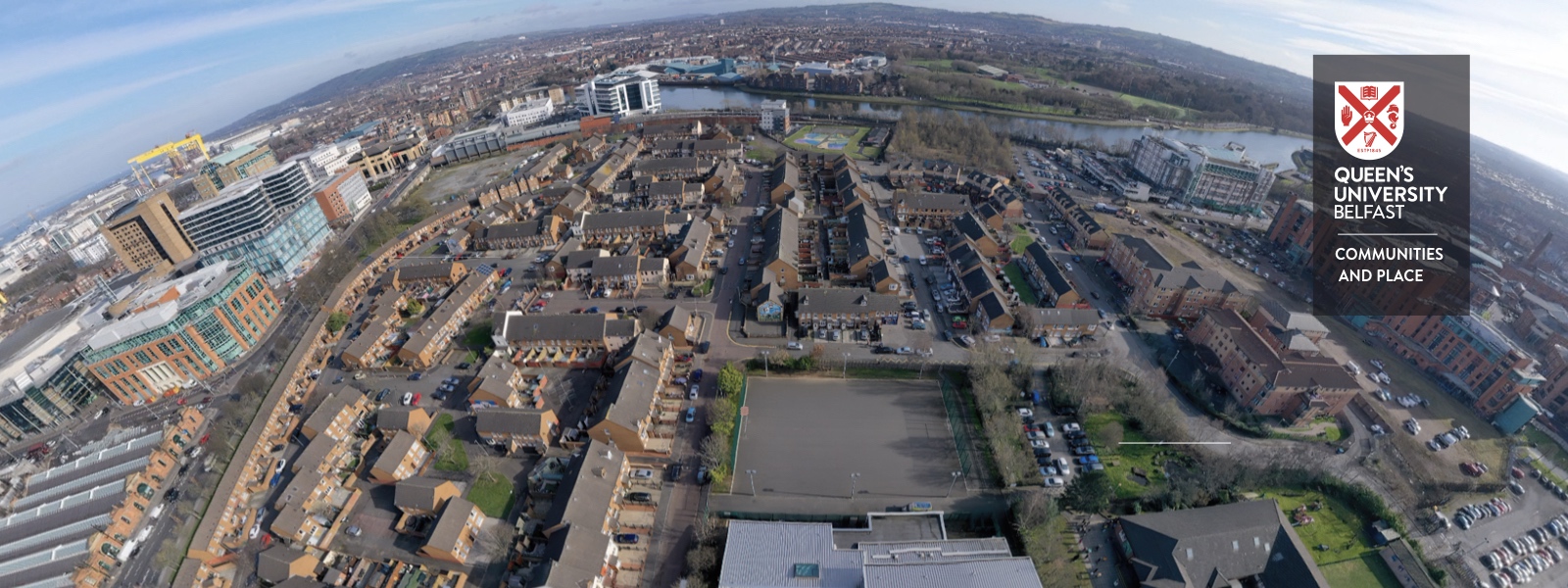Introducing QCAP Research Fellow Dr Sean French
My name is Sean French. I grew up in Castlewellan, Co. Down and South Belfast before moving to England to study Anthropology when I was 18.

I have been involved in youth and community work in various capacities since I was a teenager, mainly volunteering in the area of mental health support, ethnic minority support, and trade union work. I have also held research and community engagement roles with the UK government prior to taking up this role.
I recently completed a PhD in Social Anthropology at the University of Cambridge. My PhD thesis, entitled “Music and Noise: Loyalism, Marching, and the Meaning of the Political” focused on changing dynamics within Loyalism and the multifaceted ways people engage with (or disengage from) politics in everyday life. This was primarily done through an in-depth study of Protestant marching bands in Derry-Londonderry involving 14 months of immersive participant-observation fieldwork. I learnt the flute with a blood-and-thunder band and the tenor drum with an Ulster-Scots pipe band. Some core themes of this research were socioeconomic class dynamics, the intersection of sound and politics, and how political identity is lived in the modern day. A major part of this also involved reflecting on my own positionality as an outsider to the Loyalist community.
As part of a broader wave within Social Anthropology which seeks to “take seriously” the people we do research with, I treated the “political” as both an ethnographic category and a theoretical category in my PhD research. Sometimes, these two ways of thinking about the political come into conflict with one another. For example, someone in the field might say “there’s nothing political about marching” while, from a Foucauldian social science perspective, “everything is political” (from the way that we speak to the way we hear music to the way that we walk through space). Through exploring the different ways in which “the political” ethnographically emerged among marching bands and Loyalists in Derry-Londonderry, I reflected on this tension inherent in academic political studies between researcher and researchee, while also mapping out the complex and multifaceted ways that politics is actually experienced in that context.
A big part of exploring the emergence of the “political” as an inductive ethnographic category was through sound. The politics of soundscapes became a big theme of my research. There were different social and political connotations to different styles of Protestant marching band music in Derry-Londonderry (e.g., blood-and-thunder, pipe, accordion, silver-flute). However, the politics of sound were not confined to just music. The broader connotations around volume and tone and how it was used in public space were present in both the spoken voice and instrumental music. Therefore, part of my research explored the links between the sociopolitical connotations of certain types of speech and music (including gender), the links between them, and framed this in a broader historical context tracing the development of a particular “acoustemology” (to quote ethnomusicologist Steven Feld) across speech and music in Ireland/Northern Ireland.
I am excited to be a part of QCAP’s work. I will keep exploring some of the themes of my previous research (e.g. socioeconomic and intercommunal dynamics) but now with more of a focus on social impact and direct collaboration with communities in Belfast. I will be working in the “Education, Skills, and Inclusive Innovation” dimension of QCAP led by Gareth Robinson. My role alongside Peter Robinson will involve the development and expansion of a Community Research Network in Belfast with QCAP’s six partner communities. I am looking forward to seeing this network grow over the coming years and seeing what kinds of inductive community-driven research emerge from it. The network aims to build capacity for community workers to become community researchers, embedding research capacity in local areas in order to create more sustainable change. Through partnering the local expertise of community workers with the academic expertise of QCAP staff, the research network aims to create innovative solutions to community issues while simultaneously generating new academic insights.

